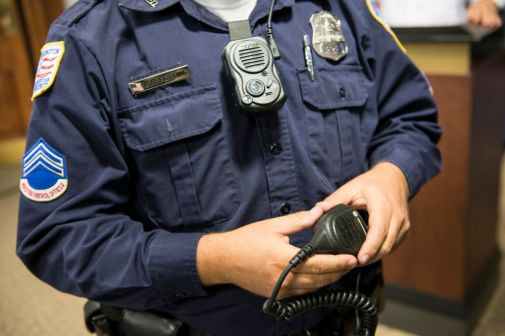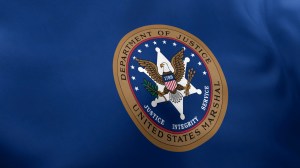US Capitol Police in ‘very early stages’ of body-worn camera pilot

The United States Capitol Police, which is the law enforcement agency responsible for protecting Congress, is in the very early stages of creating a body-worn camera pilot program, FedScoop has learned.
Unlike the majority of federal law enforcement agencies, the U.S. Capitol Police is technically part of the legislative branch, which means it did not have to comply with body-worn camera stipulations included in the executive order on policing that President Biden signed last year. The “Executive Order on Advancing Effective, Accountable Policing and Criminal Justice Practices to Enhance Public Trust and Public Safety,” ordered federal law enforcement agencies to produce policies on body-worn cameras within 90 days, among a range of other policy changes. (DHS only recently announced its body-worn camera policy — seemingly months late).
“The body-worn camera order does not apply to Legislative Branch agencies and we currently do not use body-worn cameras,” said Tim Barber, the Capitol Police’s director of communications, in an email to FedScoop. “[The] Chief Manger believes that body-worn cameras are a great tool and the USCP is in the very early stages of planning for a pilot program that would be tailored to the unique considerations of the legislative branch.”
U.S. Capitol Police Chief J. Thomas Manger was appointed to the role in July 2021, and has previously spoken openly about the benefits of body-worn cameras for officers.
In recent years, some lawmakers and officials have called for law enforcement agencies to produce body-worn camera policies, particularly following the George Floyd protests and outrage over police killings of Black people. In 2021, the Department of Justice said it would require officers at its law enforcement agencies to wear body cameras and gave those agencies a deadline for adhering to the guidance.
When FedScoop asked for more details as to a potential body-worn camera policy and the status of the pilot program, Barber replied: “When we say ‘very early stages’ we mean it. Like really just getting started with the conversations.”
The Capitol Police’s nascent interest in deploying body-worn cameras comes after lawmakers have urged the agency to adopt the technology. In the wake of the Jan. 6 riot, Rep. Don Beyer, D-Va., and Del. Eleanor Holmes Norton, D-D.C., again pushed for legislation that would require the Capitol Police to wear body cameras, though the bill, which was packaged with the George Floyd Justice in Policing Act, was never passed by the Senate. The legislation was originally proposed after US Park Police officers shot and killed Bijan Ghaisar, a 25-year-old who was unarmed, in 2017, after he left the scene of a “minor traffic accident,” per CNN.
The two lawmakers have also written to the U.S. Capitol Police to push for officers to start wearing body cameras.
“Footage of the shooting was captured by a dashboard camera in the marked car of a Fairfax County Police officer who responded to the scene. Without that footage, the Ghaisar family and the public would not have known the circumstances surrounding Bijan Ghaisar’s death,” the lawmakers wrote in a letter to the Capitol Police Board Chair in 2021. “The January 6th attack on the U.S. Capitol reinforced the importance of body cameras.”
FedScoop has reached out to both members of Congress for comment. While there is police body camera footage of the Jan. 6 riot, those recordings were collected by devices worn by officers in the Metropolitan Police Department. The MPD is the law enforcement agency for the District of Columbia, which is the equivalent of city police in other areas. While the U.S. Capitol Police is responsible for protecting the Capitol complex, it shares responsibility for the land surrounding it with the MPD, as set out in the U.S. Capitol Police Jurisdiction Act.
A representative for the White House confirmed that the executive order does not apply to the US Capitol Police or the Supreme Court Police because they don’t fall under the executive branch.
Notably, Beyer and Holmes Norton also wrote to Chief Justice Roberts urging the Supreme Court Police to acquire body cameras in 2021. The Supreme Court Police did not respond to a request for comment.
While body cameras could be a critical tool for holding officers accountable, it’s also important for the department to create stringent policy governing how the footage is used, says John Davisson, an attorney at the Electronic Privacy Information Center (EPIC).
“Deploying body cameras on Capitol Police officers poses the same privacy and surveillance risks as it does with any other law enforcement agency,” he told FedScoop in an email. “The jurisdiction of the Capitol Police extends well beyond the Capitol grounds into surrounding neighborhoods, so it’s not just Hill staff and visitors whose privacy is at stake. If the Capitol Police are intent on deploying body cameras, the agency at least needs to establish and enforce strict limits on the collection, use, and retention of the recordings.”
There are also other federal agencies that, technically, do not fall under the executive branch, including the Office of Probation and Pretrial Services under the US Courts and the Government Publishing Office Police, added Davisson, from EPIC.






